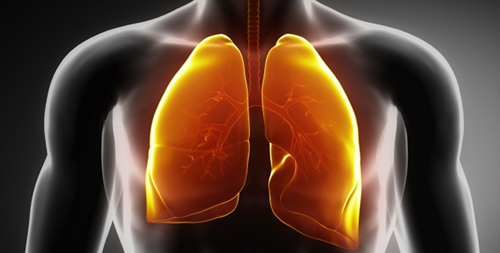28 November 2016. Tests of blood and urine from patients with a common form of lung cancer show these liquid biopsies more accurately identified cancer-causing mutations than traditional tissue sample biopsies. Results of the study will be given on 6 December at an international lung cancer conference in Vienna, Austria by Trovogene Inc. in San Diego, developer of the liquid biopsy technology.
The study reports on data from patients with non-small cell lung cancer that accounts for 80 to 85 percent of all lung cancer cases, according to American Cancer Society. Lung cancer is diagnosed today with a number of methods, but are usually confirmed with biopsies, small tissue samples removed by surgery. Analysis of biopsy samples reveal not only the presence of cancer, but with genomic testing, can also in some cases identify the mutations responsible for the cancer. Identifying the mutation may make it possible to treat the cancer by addressing that specific genomic alteration, called precision medicine.
Trovogene is a developer of liquid biopsies, cancer diagnostics using less invasive urine and blood samples than tissue samples. The company’s technology analyzes circulating tumor DNA in urine and blood with high-throughput genomic sequencing. Circulating tumor cells break away from tumors and travel through the blood stream, carrying small pieces of their DNA. Trovogene says its techniques can identify cancers earlier, sometimes before enough tumor cells develop for samples to be taken, and also monitor a patient’s progress during treatments, which would be difficult or dangerous with tissue-sample biopsies.
In the study to be presented next week, a team led by Stanford University cancer specialist Heather Wakelee compared Trovogene liquid biopsies to tissue samples from patients taking part in a clinical trial testing a non-small cell lung cancer treatment addressing a specific mutation, known as T790M, in epidermal growth factor receptor or EGFR gene. This mutation is reportedly difficult to detect, particularly in some non-small cell lung cancer cases.
Some 174 tissue samples were matched to blood and urine samples. The results show 165 combined blood and urine samples, or 95 percent of the total, revealed T790M mutations, compared to 145 or 83 percent of the tissue samples. Of the cases where blood or urine tests identified the mutation, but not the tissue samples, 16 returned positive results in both blood and urine, which suggests a greater sensitivity and not false positives. In addition, 93 percent of combined blood and urine samples detected T790M mutations in cases where the cancer resides inside the chest cavity, considered more challenging to diagnose with tissue samples.
Trovogene says the Vienna conference will feature results from other studies of its technology, including posters showing the value of its tests as early indicators of lung cancer and in patients with late-stage disease progressing on therapy. A separate poster analyzes the economics of urine tests to monitor non-small cell lung cancer treatment compared to tissue samples.
Read more:
- Large-Scale Cancer Gene Profiling Seen as Feasible
- Liquid Biopsy Lab to Reside at Cancer Institute
- Mobile Multichannel Biomarker Detector Designed
- Precision Medicine Trial Set for Pancreatic Cancer
- $1.2M Challenge Seeking More Accurate Mammograms
* * *


 RSS - Posts
RSS - Posts
You must be logged in to post a comment.